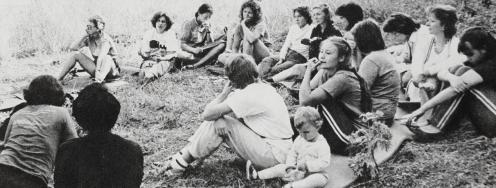Two Weeks to Iran Deadline: Talks, Deal Implementation Continue
On the radar: About that IR-5 story; No photo op in Oman; Putin’s behavior on Iran; a Reactor deal; Arms control in the last Obama years; Hanford whistleblower suit, and taking the hype out of any ISIS radiological threat.
November 11, 2014 | Edited by Will Saetren and Jacob Marx
Iran halts controversial practice - “Iran has stopped a controversial practice that could allow it to enrich uranium faster, the United States said on Monday, ceasing an activity one expert saw as violating an interim nuclear deal. The International Atomic Energy Agency issued a confidential report about Iran to its members on Friday saying that since its previous report in September Iran had intermittently fed natural uranium gas into a so-called IR-5 centrifuge,” reports Reuters.
--“Asked about the matter, U.S. State Department spokeswoman Jen Psaki told reporters that Iran had agreed to cease injecting the gas into the IR-5 centrifuge. ‘We raised that issue with Iran as soon as the IAEA reported it, and it was resolved immediately,’ Psaki said. ‘The Iranians have confirmed that they will not continue that activity as cited in the IAEA report, so it's been resolved.’" Read the full story here. http://reut.rs/1sznqrR
“We will eventually” - Negotiators in Oman have two days of intensive talks behind them, and progress has been slow. “Asked at a brief photo opportunity Monday afternoon if they were making progress, Zarif responded: ‘We will eventually.’” Negotiators have one more day to make headway in Oman, before heading to Vienna next week, writes Lara Jakes for the Associated Press.
--“One of the State Department officials said it's ‘self-evident’ there's still work to be done before a compromise can be reached. The officials noted that Kerry extended his stay in Oman by several hours to continue the discussions. ‘I'm not indicating that progress was made in any way,’ the official said. ‘A lot will be determined there, in terms of next steps for us,’ a second State Department official,” added. Read the full story here. http://abcn.ws/1uYnabA
Tweet - @lrozen: Told Kerry not going back to Oman in next few days but there is flexibility in his schedule if another trilat needed before 11/18 #irantalks
Russia’s Iran positioning - Russia has been rather cooperative, constructive even, in recent negotiations with Iran. This comes at an odd time, given Russia’s invasion of Ukraine and the general chilling of US-Russian relations. Roger Cohen of The New York Times posits that Vladimir Putin is playing a positive role in the Iran talks with the hope that the U.S., in turn, does not push back harder in the Ukraine crisis.
--“An Iran nuclear deal would be good for the United States, Iran and the world. President Obama understands its importance, hence his recent reported letter to the Iranian supreme leader, Ayatollah Ali Khamenei. An accord could place all Iran’s irreversible nuclear capacity in a limited and verifiable box, ensuring there is never an Iranian bomb, while ushering the last sizeable emerging market nation into the global economy.”
--A deal “would change the blocked politics of the Middle East, confounding America’s enemies and forcing sometimes manipulative allies to think in new and perhaps constructive ways. The deal, at this point, represents the last hope for any significant Obama legacy in the Middle East. It is clear that he wants it...But the unspoken price of an Iran deal, vital as it is, cannot be the loss of Ukraine and the unraveling of NATO.” Read the full column here. http://nyti.ms/1AV0axG
Reactors and a deal - “Russia signed a contract Friday to build two more nuclear reactors in Iran to be possibly followed by another six, a move intended to cement closer ties between the two nations,” reports Vladimir Isachenkov for the Associated Press. “The deal comes less than two weeks ahead of the Nov. 24 deadline for Tehran to sign an agreement on its nuclear program with six world powers. Tuesday's contract has no immediate relation to the talks that involve Russia and the United States, but it reflects Moscow's intention to deepen its cooperation with Tehran ahead of possible softening of Western sanctions against Iran.” Read the full story here. http://abcn.ws/1uiLp2S
Mutually beneficial deal - “The Obama administration has placed a high priority on reaching an accord” with Iran, writes Joe Barnes in The Hill. “A reasonable — if not perfect — deal are compelling in terms of U.S. national interests. At a minimum, an accord would substantially increase the time necessary for Tehran to ‘go nuclear’ should it choose to do so. Should the talks fail, moreover, the administration will face increased pressure at home and abroad to launch airstrikes at Iran's nuclear facilities.”
--“Tehran's stakes in successful talks are also clear. An agreement would pave the way for relief from the economic sanctions that have severely crippled the Iranian economy. It could also — at least potentially — mark a first, if tentative, step in Iran's return to international respectability.” Read the full column here. http://bit.ly/1wPg1tN
Editor’s note - Early Warning will be offline starting Wednesday the 12th so that the editors can participate in a Ploughshares Fund board meeting. We’ll return to our normal schedule on Monday the 17th.
Progress possible - “What can the Obama Administration hope to accomplish to reduce nuclear dangers during the last quarter-pole of this presidency, especially after being drubbed in the mid-term elections? Quite a lot, actually,” writes Michael Kreppon for Arms Control Wonk. “The big ‘get’ remains a nuclear deal with Iran,” but the 2016 Nuclear Security Summit, a successful NPT Review Conference in 2015, and the UN International Code of Conduct for space-faring nations could all advance the cause of arms control.
--If headway can’t be made on these issues, “the Obama administration is without checks and balances against domestic opponents who champion U.S. strategic modernization programs while being dead set against nuclear negotiations and treaty ratification.” Read the full column here. http://bit.ly/148MaBG
Wrongful termination - “An appeals court reinstated a lawsuit filed by a whistleblower at the Hanford Nuclear Reservation who claims he was fired by a subcontractor after raising safety issues at the nation's most polluted nuclear weapons production site. In its ruling Friday, the 9th U.S. Court of Appeals also said plaintiff Walt Tamosaitis is entitled to a jury trial.”
--“The lawsuit will continue with only URS Energy and Construction as a defendant. The 9th Circuit ruled that it had been appropriate to dismiss the U.S. Department of Energy from the lawsuit. It's the first time a court of appeals has confirmed that whistleblowers are entitled to a jury trial, [Tamosaitis attorney] said. ‘It puts them on equal footing with other victims of discrimination,’ he said.” Read the full report from the Associated Press. http://1.usa.gov/1szjgQI
“Is ISIL a Radioactive Threat?” - “In the past several months, various news stories have raised the possibility that the Islamic State of Iraq and the Levant (ISIL, also commonly referred to as ISIS) could pose a radioactive threat. Headlines such as ‘Dirty bomb fears after ISIS rebels seize uranium stash...’ have appeared in mainstream media publications and on various blog posts. Often these articles contain unrelated file photos with radioactive themes that are apparently added to catch the eye of a potential reader and/or raise their level of concern.”
--In new report for the Federation of American Scientists, George M. Moore explores whether or not these scenarios pose “a serious threat or are these headlines over-hyped? Is there a real potential that ISIL could produce a ‘dirty bomb’ and inflict radiation casualties and property damage in the United States, Europe, or any other state that might oppose ISIL as part of the recently formed U.S.-led coalition? What are the confirmed facts? What are reasonable assumptions about the situation in ISIL-controlled areas and what is a realistic assessment of the level of possible threat?” Read the full report here. http://bit.ly/1qAlvCv
Quick Hits:
--“Nuclear Deal Optimism Lifts Iranian Stocks to Five-Month High,” by Golnar Motevalli for Bloomberg News. http://bloom.bg/1GLI4yA
--“True Security,” a letter to the editor from Kelli Hunnicutt, a concerned mother who takes on nuclear spending. Published in The News & Observer. http://bit.ly/1oGIXCu
--“May the Force (Not) Be with You: Missile Defense and the Legacy of SDI,” by Robert Farley in The National Interest. http://bit.ly/1pMN0y0
Events:
--“Prospects for a Nuclear Agreement with Iran," featuring Robert Litwak, Wilson Center; Mark Mazzetti, New York Times; and Jay Solomon, Wall Street Journal. Nov. 12 3:00-4:30 p.m.,Wilson Center, Sixth Floor, Reagan Building, 1300 Pennsylvania Ave. NW, Washington. RSVP online http://bit.ly/1wYWRkI
--“Radioactive Knowledge: State Control of Scientific Information in Post-Soviet Kazakhstan," featuring Magdalena Stawkowski, Stanford University. Nov. 13, 3:30-5:00 p.m. Stanford University, CISAC Conference Room, Encina Hall Central, Second Floor, 616 Serra St., Palo Alto, CA. RSVP online. http://stanford.io/1wkOxf8
--“Eyes on North Korea: Threats from the Hermit Kingdom," featuring Mark Tokola, former deputy chief of mission, U.S. Embassy in South Korea; Bruce Klingner, former CIA deputy division chief for Korea; Fred Fleitz, former CIA analyst; and Bruce Bechtol, former senior intelligence analyst, Defense Intelligence Agency. Nov. 20, Noon-1:30 p.m., International Spy Museum, 800 F St. NW, Washington. Tickets are $12. http://bit.ly/1tMxkvw
--Friends Committee on National Legislation, annual meeting. Nov. 22-23. Washington Plaza Hotel, 10 Thomas Circle NW, Washington, and on Capitol Hill. Register online. http://bit.ly/1zRq30A



